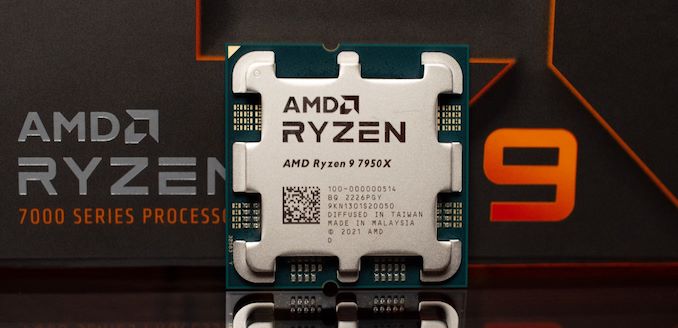When reading through Anandtech's review of Ryzen 7 I came across this:

 www.anandtech.com
www.anandtech.com
I'm not gaming. It's compiling software and other CPU intensive tasks. And just general system responsiveness. So, am I actually better off just having a single stick rather than multiple of I can get the amount of RAM I need on one chip? I was considering 64GB if I make the jump to Ryzen 7.

AMD Zen 4 Ryzen 9 7950X and Ryzen 5 7600X Review: Retaking The High-End
Not being wise in the ways of memory this completely caught me off-guard. I had imagined Ryzen 7 had some dual-channel set up and I could put in two sticks or four sticks and happy days.As for memory speeds and capacities supported, while AM5 enforces the use of DDR5, ultimately it’s the individual memory controllers that determine the rest. For AMD’s Ryzen 7000 desktop processors, which are based on the Zen 4 Raphael design, these chips offer support for official (JEDEC) speeds at up to DDR5-5200 for a 1 DIMM Per Channel (DPC) configuration. But, like all other DDR5 products we’ve seen thus far, 2 DPC comes with a significant penalty; in that case the maximum JEDEC speed is reduced to just DDR5-3600.
So as was the case with Intel’s Alder Lake platform, system builders are going to need to put a lot more thought into how they go about adding memory, and how they’re going to handle future memory expansion, if at all. While Ryzen 7000 can drive a 2 DPC/4 DIMM setup, you’re going to lose 31% of your memory bandwidth if you go that route. So for peak performance, it’ll be best to treat Ryzen 7000 as a 1 DPC platform
I'm not gaming. It's compiling software and other CPU intensive tasks. And just general system responsiveness. So, am I actually better off just having a single stick rather than multiple of I can get the amount of RAM I need on one chip? I was considering 64GB if I make the jump to Ryzen 7.

